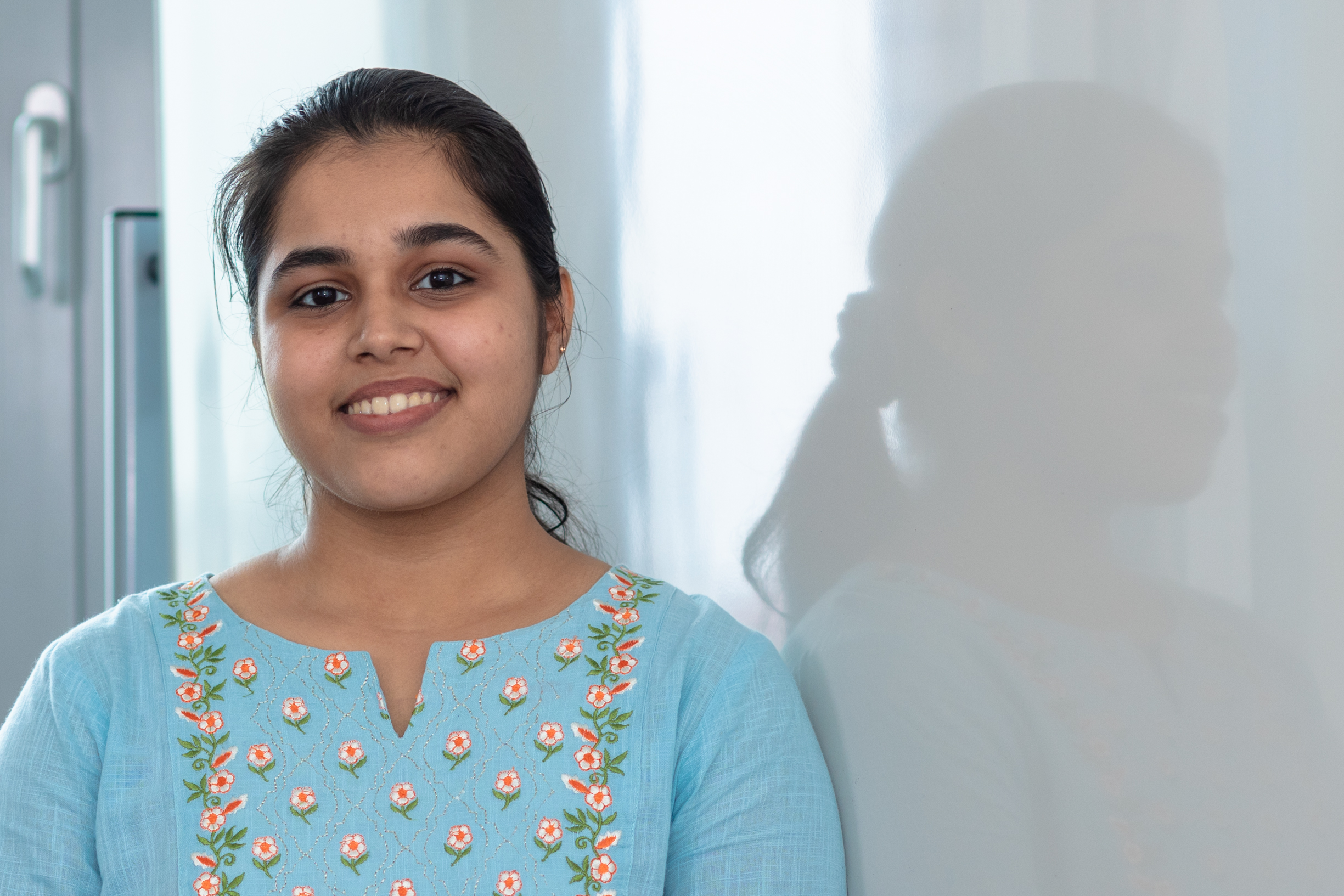How the DAAD’s Graduate School Scholarship Programme (GSSP) here at BIGSSS Facilitates International Exchange in Academia › view all
14.04.2025
By Kimberly Van Cleave

© Matej Meza
A scholarship for up to four years, grants for travel and insurance as well as help with arriving in Germany - the Graduate School Scholarship Program (GSSP) of the German Academic Exchange Service (DAAD) offers support in many areas. Currently, eight doctoral candidates from diverse backgrounds are working at the University of Bremen through GSSP. However, the benefits of the program extend beyond the scholars themselves – German researchers also gain from this international exchange.
Studying Antifeminist Movements in India and Beyond
Darsana Varier often finds that her research topic sparks immediate interest. Her topic: anti-feminist movements in India and their resistance to initiatives to criminalize marital rape. Although the criminalization has already been achieved in all European countries, anti-feminist movements are also gaining strength here. Darsana’s research seeks to explore the similarities and differences between these movements in India and Europe.
“This is exactly the kind of comparison I want to encourage with my research,” says the Indian doctoral student, who has been working at the University of Bremen since September 2024.
At the beginning of her research work, Darsana was particularly interested in the question of why anti-feminism occurs in so many contexts outside the West. “India is still very patriarchal,” she explains, “so why do some men seem to feel so threatened that they set up their own organizations to defend their rights? Who specifically do they want to address and what means do they want to use to achieve their goals?” To answer these questions, she is investigating the Save Indian Family Foundation, an anti-feminist organization that claims to have 100,000 members and is organized at both federal and state levels in India.
“In sociology, such organizations are often referred to as fringe movements,” she explains. However, the perception of these groups as marginal stems from a progressive viewpoint that assumes a worldwide advancement in women’s rights. In contrast, Darsana observes a countertrend in many countries, prompting her to structure her research as a case study that enables cross-national comparisons.
Pursuing a doctorate at the BIGSSS: international environment, structured working conditions
Darsana developed the underlying concept for her doctorate in Bremen. “Here in Germany and especially in Bremen, social science research is very method-oriented, which helped me,” she says. In general, she likes the structured way of working in a graduate school like BIGSSS. “You can feel lonely very quickly when you're doing a doctorate, especially if you come from abroad,“ she explains. Attending seminars with fellow doctoral students at BIGSSS and presenting interim results to one another helps with that.
In addition to Darsana, seven other doctoral students are currently working at BIGSSS as part of the Graduate School Scholarship Program, as well as 60 additional doctoral fellows from other programs. Two additional GSSP positions are currently being filled. Dr. Christian Peters, Managing Director of BIGSSS, attributes this success in part to the graduate school’s fundamental international orientation: English is the working language here and around half of the doctoral students come from abroad. “We also ensure that the doctoral candidates and supervisors are well-matched in terms of content and that there is as much exchange as possible,” he says.
Making international perspectives more visible in research
With the DAAD program, BIGSSS wants to foster cross-border research and comparative studies. The program strategically incorporates research topics relevant to the Global South. Additionally, BIGSSS leverages its connections with international doctoral researchers to expand its global academic network. For example, it invites scholars—known to the doctoral candidates from their home countries—to deliver guest lectures in Bremen.
A combination of strong academic conditions, international engagement, and dedicated scholars forms the recipe for success of the GSSP at BIGSSS.
Originally published in the online magazine of the University of Bremen „up2date.”
